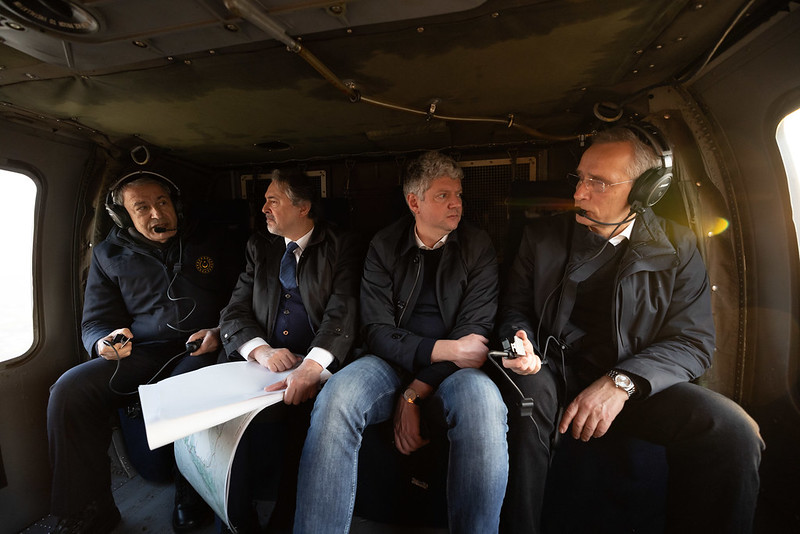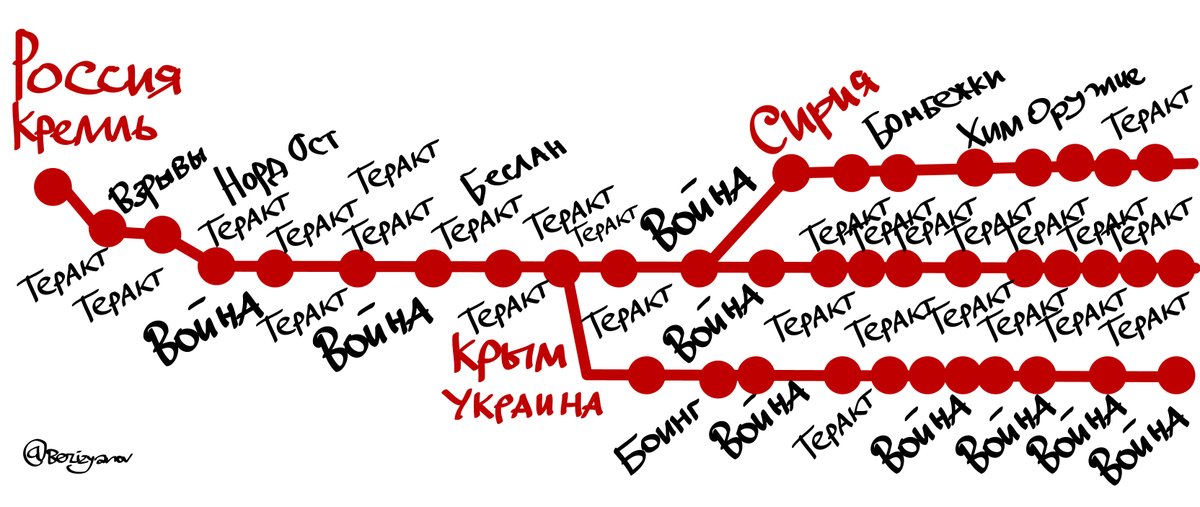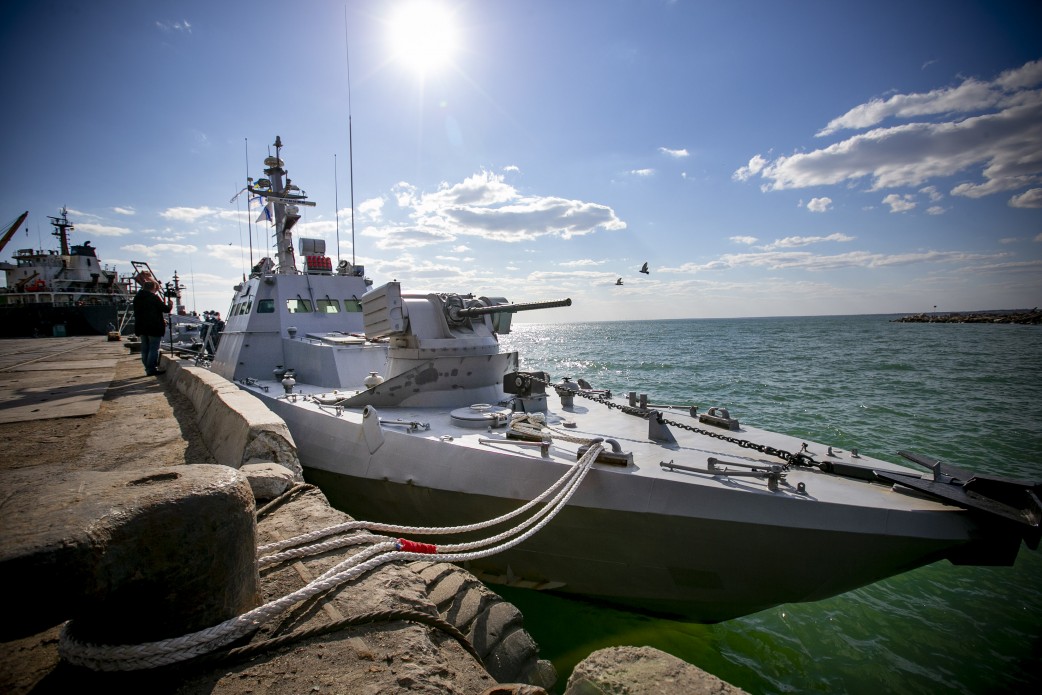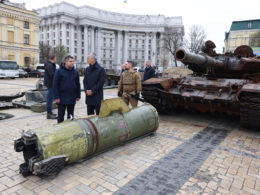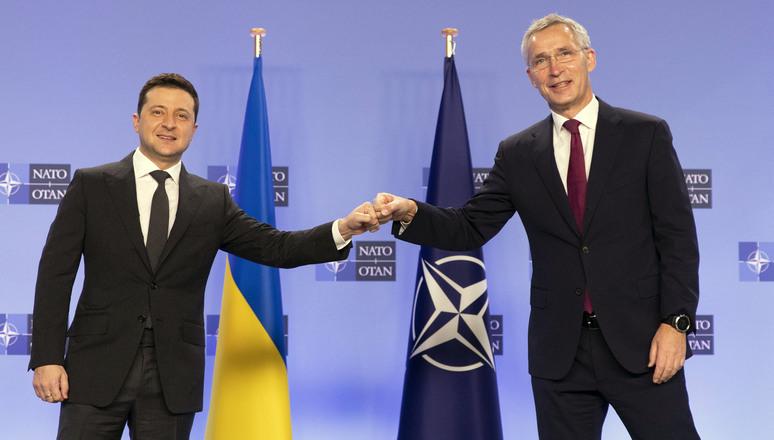During a debate on 15 August, Stian Jenssen, the head of the NATO Secretary General’s Office, said that one must have some thoughts about what the security situation for Ukraine should be when the war ends.
“I think that a solution could be for Ukraine to give up territory and get NATO membership in return,” Jenssen said in a debate organized by the Norwegian Atlantic Committee.
The statement caused a public uproar.
Ukraine sharply criticized the head of the NATO Secretary General’s Office.
“Trading territory for a NATO umbrella? It is ridiculous. That means deliberately choosing the defeat of democracy, encouraging a global criminal, preserving the Russian regime, destroying international law, and passing the war on to other generations. Attempts to preserve the world order and establish a ‘bad peace’ […] will not bring peace to the world, but will bring both dishonor and war,” said Zelenskyy staffer Mykhailo Podoliak, who believes that unless Russian dictator Vladimir Putin suffers a crushing defeat, the war will certainly come back, and Russia will have an appetite for more.
Mr. Jensen later retracted the statement, saying that his proposals to discuss Ukraine’s membership of the North Atlantic Alliance in exchange for territorial concessions to Russia were a “mistake” and stressing that it is Ukraine that should decide under what conditions it will be ready to start negotiations with Moscow and what those negotiations will be about.
The thing is that Ukraine has long defined its preconditions for negotiations.
It demands the restoration of territorial integrity, respect for the UN Charter, compensation for all damages caused by the war, punishment of every war criminal and guarantees that this will not happen again. President Zelensky has since presented his 10-point peace plan. The plan calls for:
- Radiation and nuclear safety, focusing on restoring safety around Europe’s largest nuclear power plant, Zaporizhzhia in Ukraine, which is now Russian occupied.
- Food security, including protecting and ensuring Ukraine’s grain exports to the world’s poorest nations.
- Energy security, with focus on price restrictions on Russian energy resources, as well as aiding Ukraine with restoring its power infrastructure, half of which has been damaged by Russian attacks.
- Release of all prisoners and deportees, including war prisoners and children deported to Russia.
- Restoring Ukraine’s territorial integrity and Russia reaffirming it according to the UN Charter, which Zelenskyy said is “not up to negotiations.”
- Withdrawal of Russian troops and cessation of hostilities, restoration of Ukraine’s state borders with Russia.
- Justice, including the establishment of a special tribunal to prosecute Russian war crimes.
- Prevention of ecocide, need for protection of environment, with focus on demining and restoring water treatment facilities.
- Prevention of escalation of conflict, and building security architecture in the Euro-Atlantic space, including guarantees for Ukraine.
- Confirmation of the war’s end, including a document signed by the involved parties.
“Ukraine, world don’t need frozen conflicts” – Zelenskyy on African “peace plan”
Despite this – and despite NATO’s demand that “Russia must immediately stop its illegal war of aggression, cease its use of force against Ukraine, and completely and unconditionally withdraw all of its forces and equipment from the territory of Ukraine within its internationally recognized borders, extending to its territorial waters” – Jensen suggested that Ukraine should consider to give up territory and get NATO membership in return.
Saying it out loud was a mistake. That does not change the fact that it probably was his honest opinion.
Here is why the statement is both absurd, unrealistic, highly unfortunate, and still, probably accurate.
1. Believing Russia will negotiate is absurd
It is absurd because the West is the only party that discusses negotiations. Both Ukraine and Russia have outlined their preconditions for talks, and both find the opposing terms utterly unacceptable.
Russia demands that Ukraine remains neutral and does not join NATO and the EU, confirming Ukraine’s nuclear-free status and not least, recognition by both Ukraine and the international community of “the new territorial realities”.
Only the Ukrainian preconditions reflect the guiding principles of the UN Charter and international law. Suggesting ceding territory in exchange for NATO membership and collective defense does not. The idea supports Russia’s aim and objectives, rewarding it for its war of aggression and its atrocities. It puts the very same principles and values aside for an unjust and unsustainable peace.
The proposal fiercely contradicts Western interests built on the integrity of the international security architecture as the foundation for its security, stability, and prosperity.
2. Believing Russia will abandon its long-term to subjugate Ukraine is unrealistic
It is unrealistic because the “plan” does not recognize the fundamental nature of the war. Ukraine is involved in an existential war, fighting for its right to exist. Having made the strategic blunder of starting a full-scale invasion, Russia is also committed to an existential war. It either defeats Ukraine or must forfeit its Great Power ambitions. The regime is fighting for its survival as China is slowly increasing its control over Russia’s eastern neighborhood.
According to James Sherr – and the Chatham House report “How to end Russia’s war on Ukraine,”
“the war is an existential one for Ukraine, and is also framed by Russia as a war of vital national interests. Similar conflicts have almost always ended with the victory of one belligerent and the defeat of the other. Calls to ‘settle now’ are based on false analogies and an underestimation of the issues at stake.”
Russia will never accept a peace plan that does not meet or support its long-term aim of subjugating Ukraine. That’s a prerequisite for its ability to uphold its ongoing confrontation with the West.
Ukraine will, on the other hand, never accept a peace plan that does not secure its right to exist.
Additionally, any suggestion of territorial concessions fails to recognize that the Russian Federation has included Crimea, Kherson, Zaporizhzhia, Donetsk, and Luhansk oblasts in its constitution. This effectively shoots down any suggestions of compromises:
- The area includes more Ukrainian territory than Russia presently occupies.
- In 2020, Russia adopted an amendment to its Constitution that forbids it to cede any territory once it has been declared part of Russia.
Still, several Western officials – including the head of the NATO Secretary General’s Office – suggest just that: a compromise at the cost of Ukrainian territorial integrity and the integrity of international law.
3. Creating the impression that NATO is willing to play along with Russian aggression is highly unfortunate
The statement is also highly unfortunate because it creates the impression that NATO does not understand Russia, its aims and objectives, what is at stake, and the far-reaching consequences of giving in to an aggressive autocrat.
- It helps to underpin Putin’s view of the West as weak and fuels his motivation to continue the war of aggression. Forcing Ukraine to cede territory will not only reward Russia but also help undermine Ukrainian security and stability.
- It would leave Russia in control over more than 20% of Ukrainian territory and 100% of its Maritime Exclusive Zones.
- It will also provide Russia time to force generate new forces and a brilliant launch pad for its next invasion.
- Equally crucial, a compromise in direct conflict with Ukraine’s national interests will cement the impression that the West is being deterred by Russia. Its irrational fear of a broader confrontation (that is already taking place) and the potential use of nuclear arms (that is extremely unlikely) has forced the collective West to back down in the face of “Russian might.” It will confirm the validity of its “nuclear fait accompli” strategy, increasing the likelihood of it being used in all future confrontations.
- It will, not least, convince Russia – and any other Great Power wannabes – that the West does not have what it takes to defend the international security architecture, its shared common interests, values and principles.
4. However, the statement is accurate in that it reflects NATO’s prevailing ideas
Still, the statement made by Stian Jensen, the head of the NATO Secretary General’s Office, on 15 August is probably accurate.
This is a person that does not maintain his situational awareness through the media. He gets his understanding from participating in daily high-level meetings. Jensen is keenly aware of the prevailing ideas and thoughts within both NATO and its member states. His suggestion that a solution could be for Ukraine to give up territory, and get NATO membership in return, is not an impulsive, spur-of-the-moment idea that popped up in the middle of a debate.
It is the result of months of deliberations after listening to multiple strategic-level meetings and talks. This is a man that knows how the US, the UK, Germany, and France believe the war will end.
To be fair, what he said reflects the US intent.
While the US has carefully avoided talking about territorial concessions, the sum of its statements and actions says the same thing:
- It has failed to support the Ukrainian desired end state. It has deliberately avoided defining its red lines and what a Ukrainian victory looks like;
- Its strategy for supporting Ukraine has not been clearly articulated;
- More importantly, it is not setting Ukraine up for victory (fearing the consequences of a Russian defeat).
- And on top of that, US officials keep stressing that “all wars end in negotiations”.
General Milley framed it perfectly when he said that the war will end at the negotiation table because neither Russia nor Ukraine will achieve their goals while knowing that the US holds the key to the failure or success of both.
The collective West has the means to end the war in weeks if it so decided. Unfortunately, the US has no such ambitions.
To end the war, to bring peace, NATO summit should welcome Ukraine, now
While Europe might disagree – acknowledging that European security and stability are at stake – it lacks the military capability to do anything about it.
No wonder an emboldened Dmitry Medvedev, the deputy chairman of Russia’s Security Council, stressed that “should Ukraine agree to relinquish disputed territories for the sake of joining NATO, it will have to give up even Kyiv.”
NATO’s attempt to solve a war that is fundamental to our future security and stability with as low costs and risks as possible tells Russia that victory remains within reach.
All of Europe should be worried.
Related:
- To end the war, to bring peace, NATO summit should welcome Ukraine, now
- The new strategy NATO needs to avoid a protracted war in Ukraine
- Why isn’t the West equipping Ukraine to win the war?

